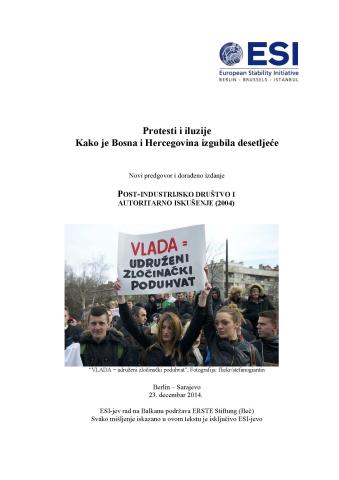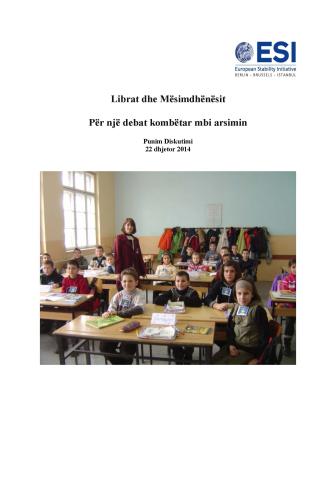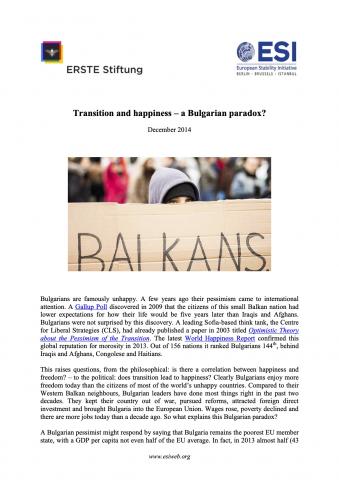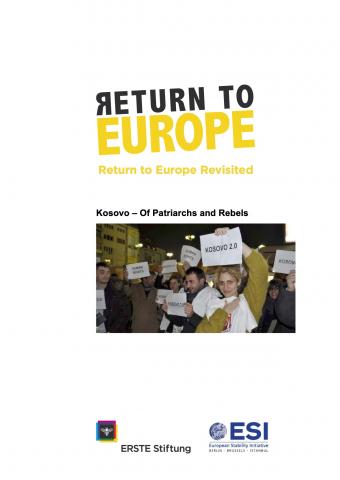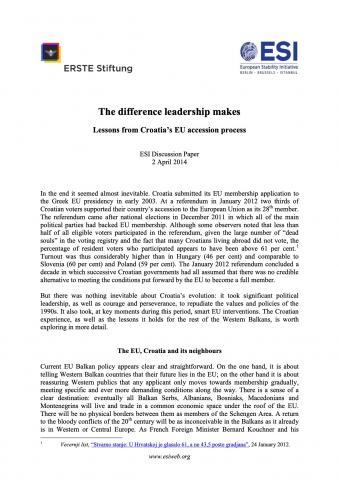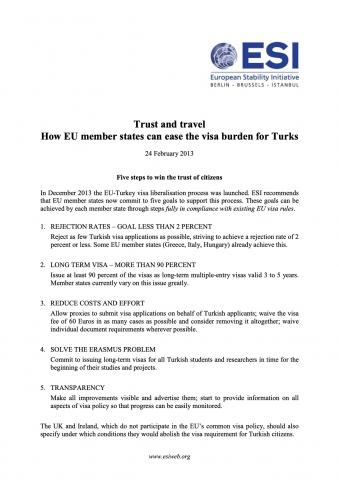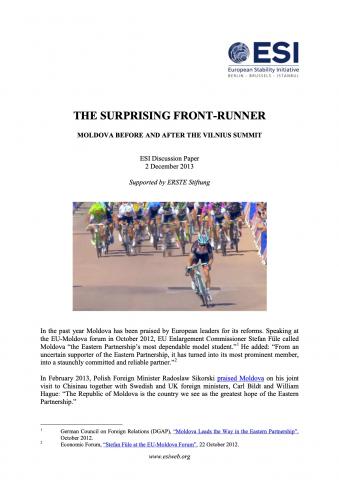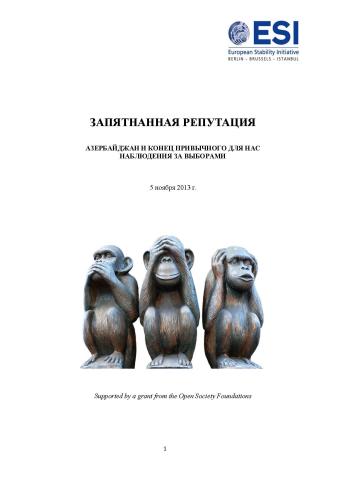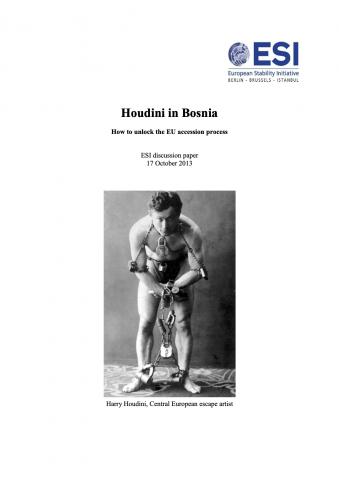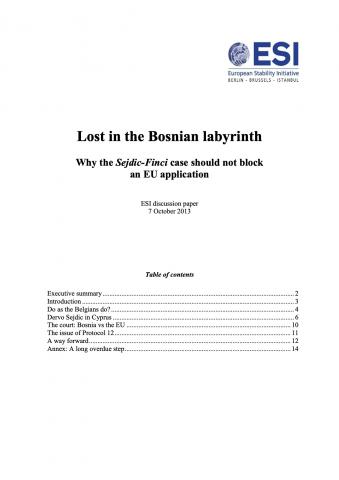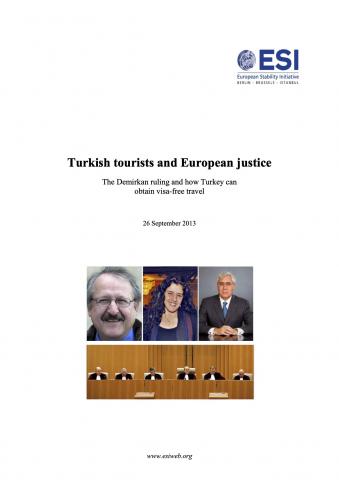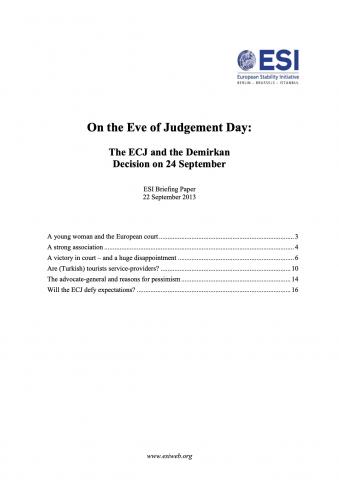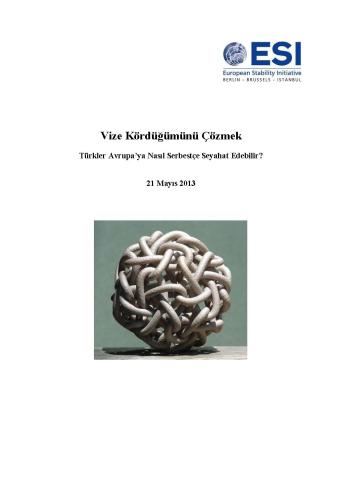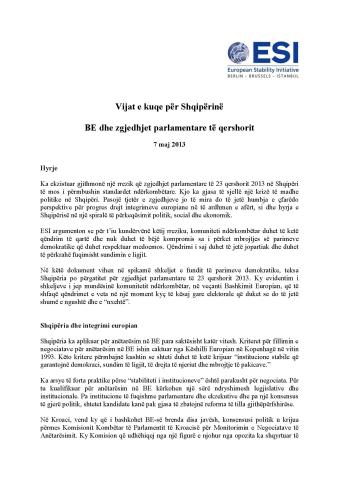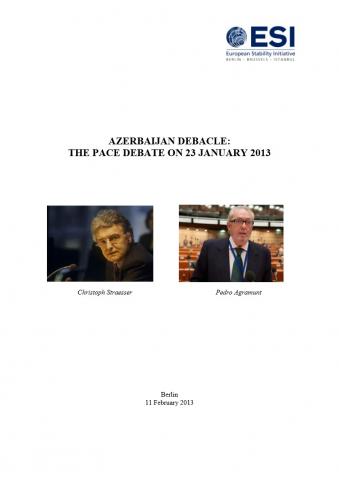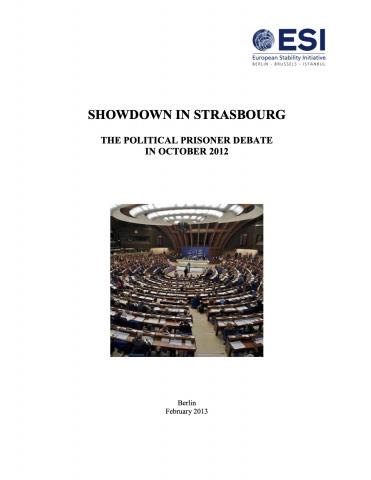Publications
155 PublicationsProtests and Illusions – How Bosnia and Herzegovina lost a decade
Bosnia and Herzegovina is the only country in South East Europe were it is possible to publish a report first published in 2004 as relevant in 2014. No other country lost a full decade. We hope that this will help new governments in Bosnia – and international policy makers – to also avoid the traps into which they fell during the past ten years.
Books and Teachers – The Great Debate on Education Kosovo needs in 2015
Kosovo has the youngest population in Europe, with half its population under the age of 26. A quarter of the population is in schools at any given time. In the coming decade, these students will be leaving schools and will face a most uncertain future. If things go well, today’s students will help their country catch up with the rest of Europe. If things go badly, they will be deprived of prospects, short of jobs and income, tempted to take to the streets in protest or to seek to emigrate.
Bulgaria – Transition and happiness - a Bulgarian paradox?
Bulgarians are famously unhappy. A Gallup Poll discovered in 2009 that the citizens of this small Balkan nation had lower expectations for how their life would be five years later than Iraqis and Afghans. Bulgarians were not surprised by this discovery. A leading Sofia-based think tank, the Centre for Liberal Strategies (CLS), had already published a paper in 2003 titled Optimistic Theory about the Pessimism of the Transition.
Turkish Students, Isolation and the Erasmus Challenge
This paper identifies major issues that prevent Turkish students from going abroad in higher numbers: a foreign language deficit; a lack of attractive courses for foreign students in Turkey, which makes it harder for many universities to sign cooperation agreements with foreign partners; a lack of funding for Turkish Erasmus students; and complicated visa application procedures.
Turkey – Kafka's World and the Trial of Mehmet O.
Turkey has a tradition of rough and ready criminal justice. Judges virtually never reject an indictment, including many unconvincing ones launched by overzealous prosecutors. With a population smaller than Germany, Turkey had five times more criminal cases in 2010. Germany has 24 judges per 100,000 inhabitants; Turkey only 11. The workload for every Turkish judge is thus more than ten times that of a judge in Germany. One can see the results in any ordinary criminal court across the country, where a judge hears up to 20 cases a day.
Vladimir and Estragon in Skopje - A fictional conversation on trust and standards and a plea on how to break a vicious circle
There is no past, no future, just an endlessly repeating present. Characters are imprisoned in a single place, unable to leave. They inhabit a universe filled with futile dialogue and futile gestures. People are lost. We are on the set of Waiting for Godot. We are in the world of EU-Macedonian relations in 2014. Is this the future of European enlargement policy throughout South East Europe?
Kosovo – Of Patriarchs and Rebels
Kosovo’s (male) politicians repeat on every occasion that they see their country’s future as a member of the European Union. For this to happen, however, not only will the five EU member states yet to recognise Kosovo’s independence need to change their position, but the country will need more people willing to challenge its taboos. It will need champions for girls’ education, a revolution in the labour market and new forms of family life and gender relations.
Timisoara 2.0
Romania's membership of the EU in 2007 seemed to promise a continuation of the growth trajectory and an eventual catching up with EU living standards. It was a promise that seemed plausible until 2008. In the six years after Romania started its accession negotiations, GDP per capita rose from 30 to 47 per cent of the EU average. Romania remained poor, but salaries were rising. A new middle class – university graduates employed by multinational companies – found itself with money to spend.
The difference leadership makes - Lessons from Croatia's EU accession process
There was nothing inevitable about Croatia's evolution: it took significant political leadership, as well as courage and perseverance, to repudiate the values and policies of the 1990s. It also took smart EU interventions. The Croatian experience, as well as the lessons it holds for the rest of the Western Balkans, is worth exploring in more detail.
Trust and travel - Easing the visa burden for Turks in five steps
In December 2013 the EU-Turkey visa liberalisation process was launched. ESI recommends that EU member states now commit to five goals to support this process. These goals can be achieved by each member state through steps fully in compliance with existing EU visa rules.
The surprising front-runner - Moldova before and after the Vilnius summit
The prospects of obtaining visa-free travel and signing the Association Agreement and DCFTA soon are both good news. At the same time Moldova desperately needs economic development and increased foreign direct investment. For this a clear long-term EU membership perspective would be crucial. If the EU wants Moldova to become a true success story in the Eastern neighbourhood, it should be prepared to go further.
Disgraced - Azerbaijan and the end of election monitoring as we know it
This report argues that the future of election monitoring on the European continent depends on how decision makers – in the European Parliament, in the Council of Europe, in the OSCE Parliamentary Assembly and in European governments – react now. It is vital to revisit the facts and analyses behind the different assessments, and to retrace how different groups of observers could arrive at radically diverging conclusions. The relationship between long- and short-term election observers needs to be rethought.
Houdini in Bosnia - How to unlock the EU accession process
Bosnia and Herzegovina has already broken every record when it comes to its Stabilisation and Association Agreement (SAA) with the EU. It started negotiations in November 2005. Eight years later, the agreement has not yet entered into force. No other Balkan country has taken so long. Bosnia has also not yet submitted an application for EU accession. If the experience of Albania and Macedonia is anything to go by, it might not start accession talks for another decade.
Lost in the Bosnian labyrinth - Why the Sejdic-Finci case should not block an EU application
In December 2009 the European Court of Human Rights found – in its judgement in the case Sejdic and Finci vs. Bosnia and Herzegovina – that the constitution and election law of Bosnia and Herzegovina violate the European Convention on Human Rights and its protocols. Behind the international interest in this case lies a strong sense of moral outrage. How can a country in today’s Europe prevent a Roma or a Jew from running for head of state? Is this not a racist constitution?
Turkish tourists and European justice - The Demirkan ruling and how Turkey can obtain visa-free travel
On 24 September 2013 many eyes across the EU and Turkey turned to Luxembourg. There, at just after nine-thirty in the morning, the Court of Justice of the European Union (or European Court of Justice, ECJ) delivered a judgement in one of its most important cases this year. The issue at stake was visa-free access to EU countries for Turkish citizens.
On the Eve of Judgement Day: The ECJ and the Demirkan Decision on 24 September
On 24 September 2013 at just after nine-thirty in the morning the Court of Justice of the European Union (or European Court of Justice, ECJ) will deliver a judgement in one of the most important cases it will decide this year. The outcome will affect millions of Turkish citizens. It could also have a profound impact on the future of the Schengen visa system.
Cutting the Visa Knot - How Turks can travel freely to Europe
Visa liberalisation has been a crucial element in the EU’s relations with Romania, Serbia and Albania. Yet until recently it had not even appeared on the agenda of talks between Brussels and Ankara. Then on 21 June 2012, the Council invited the Commission to establish a dialogue with Turkey aimed at visa liberalisation. Almost a year has passed since these Council conclusions. The dialogue on visa liberalisation has yet to begin.
Red Lines for Albania - The EU and the June Parliamentary Elections
As Albania prepares for parliamentary elections on 23 June 2013 this paper draws attention to recent violations of democratic principles in Albania that provide the international community, and in particular the European Union, with an opportunity to make a crucial point of principle at a crucial moment in what is set to be a very right and heated electoral contest.
Azerbaijan debacle: The PACE debate on 23 January 2013
On 23 January 2013 a record 224 members of the parliamentary assembly of the Council of Europe (PACE) participated in a debate on Azerbaijan. There have never been more members voting on any resolution in the history of PACE. The vote was also historic because of its outcome: PACE rapporteur Christoph Straesser's resolution on political prisoners in Azerbaijan was defeated – 125 votes against 79 votes, with 20 abstentions – sending a very strong signal of support to the authoritarian regime in Baku.
Showdown in Strasbourg - The political prisoner debate in October 2012
It was the most dramatic vote in the history of the Parliamentary Assembly (PACE) of the Council of Europe: a vote on the definition of "political prisoner" and whether or not PACE had the responsibility to monitor the state of fundamental rights in member states. It was one of the most well-attended debates in the organization's history. It was also the one with the closest ever result at the end of the debate.

